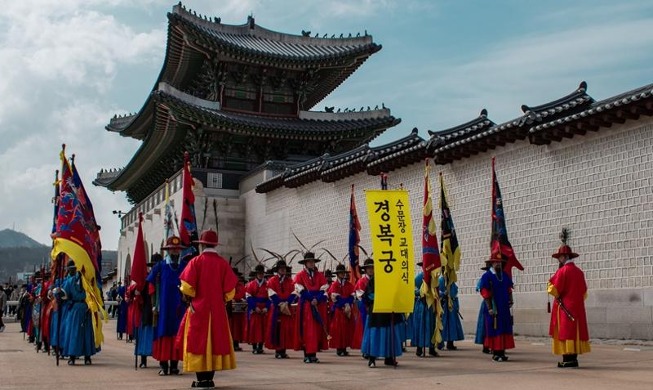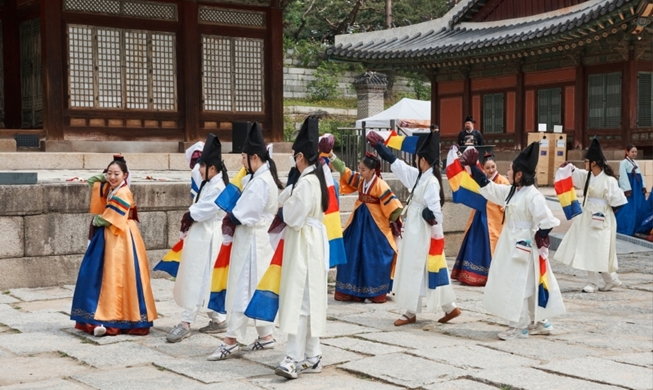-
 Korea.net's 24-hour YouTube channel
Korea.net's 24-hour YouTube channel- NEWS FOCUS
- ABOUT KOREA
- EVENTS
- RESOURCES
- GOVERNMENT
- ABOUT US
Eight Korean family-themed movies are now available across more than 110 countries in eight languages, including simplified Chinese, Japanese, German, Spanish, Russian and Arabic.
The Korean Ministry of Culture, Sports and Tourism (MCST) and the Korean Film Archive (KOFA) on January 22 released their co-produced “Family on Screen: Understanding Korean Society and Family through Films,” a DVD collection of eight movies depicting Korean families, sorted by period.
The series comes with subtitles in eight languages and a reference manual that provides explanations of each film in both Korean and English.
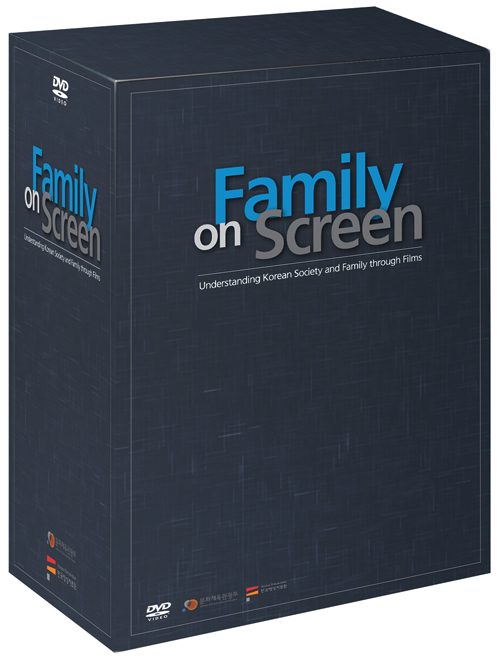
The series consists of eight movies. “Romantic Papa” (1960), directed by Sin Sang-ok, portrays how patriarchy was deeply embedded in Korean families back in the 1960s. “Rainy Days” (1979) was directed by Yu Hyun-mok and is centered around a conflict and division amongst family members. Lee Doo-yong’s “The Oldest Son” (1984) depicts a large family, grief-stricken, swirling into disarray during the 1980s. “The Quiet Family” (1998), directed by Kim Ji-woon, casts light on what happened to one family just after the 1997 Asian financial crisis. The 2006 smash-hit “The Host,” directed by Bong Joon-ho, portrays a family venturing out to save the youngest daughter after she was snatched away by a creepy monster that suddenly appears out of the Han River. “Punch” (2011), directed by Lee Han, tells the amusing story of a teenaged rascal and the teacher who tries to help the troublemaker meet his biological mother, of whose existence he was not aware. Finally, the last two movies are “A Good Lawyer’s Wife” (2003) directed by Lim Sang-soo and “Family Ties” (2006) directed by Kim Tae-yong.
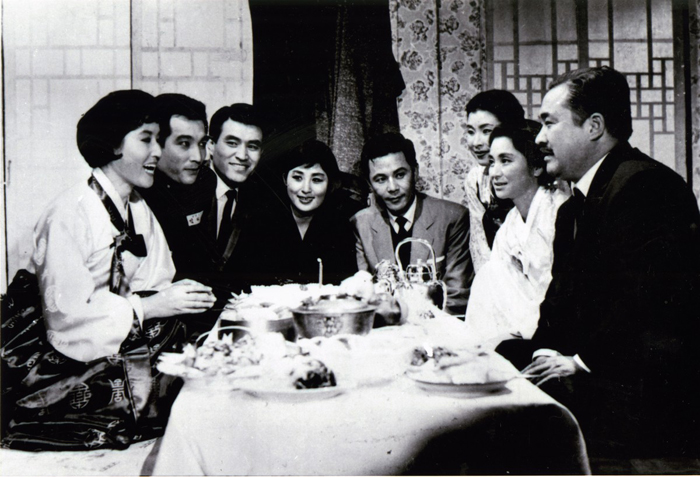
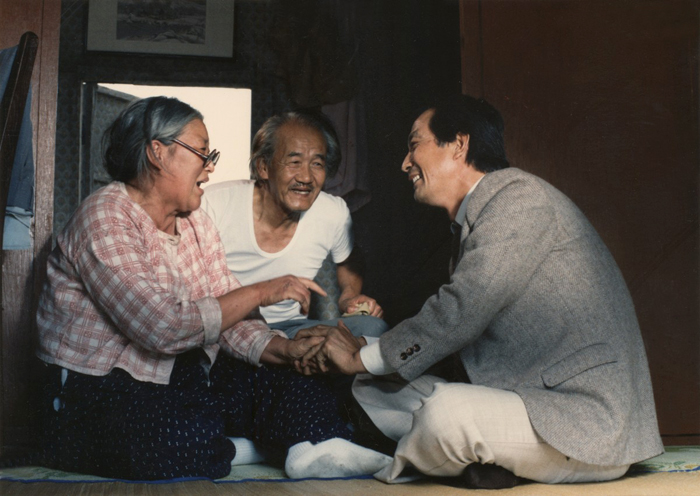
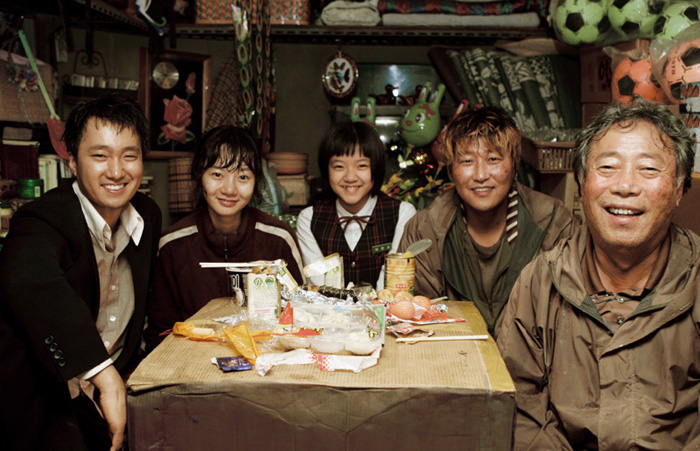
This production is the second of the “Understanding Korean Society through Films” project, after the 2013 collection, “Women on Screen: Understanding Korean Society and Women through Films,” which included eight movies chronicling changes in Korean women’s lives as a whole.
The 2014 collection has been donated to prestigious universities around the world, such as Harvard University, Colombia University, University of Tokyo and the University of Cambridge, and also to the U.S.’s Library of Congress based in Washington, D.C., and the Berlin Film Museum in Germany.
The collection is also available at Korean cultural centers and King Sejong Institutes across the globe, aimed at helping people to learn about Korean culture and the Korean language. Specifically, this policy is aimed at countries and areas with less access to Korean movies, such as Russia, Latin America and Africa.
“There will be more to come. Every year we choose a different theme and produce and distribute a series of such-themed movies overseas,” said the KOFA in a statement. “This project will, hopefully, lead to deeper studies of Korean movies, and moreover, help lift hallyu, the Korean Wave, itself.”
By Sohn JiAe
Korea.net Staff Writer
jiae5853@korea.kr
The Korean Ministry of Culture, Sports and Tourism (MCST) and the Korean Film Archive (KOFA) on January 22 released their co-produced “Family on Screen: Understanding Korean Society and Family through Films,” a DVD collection of eight movies depicting Korean families, sorted by period.
The series comes with subtitles in eight languages and a reference manual that provides explanations of each film in both Korean and English.

The DVD collection of eight Korean family-themed movies, “Family on Screen: Understanding Korean Society and Family through Films” (Photo courtesy of the KOFA)
The series consists of eight movies. “Romantic Papa” (1960), directed by Sin Sang-ok, portrays how patriarchy was deeply embedded in Korean families back in the 1960s. “Rainy Days” (1979) was directed by Yu Hyun-mok and is centered around a conflict and division amongst family members. Lee Doo-yong’s “The Oldest Son” (1984) depicts a large family, grief-stricken, swirling into disarray during the 1980s. “The Quiet Family” (1998), directed by Kim Ji-woon, casts light on what happened to one family just after the 1997 Asian financial crisis. The 2006 smash-hit “The Host,” directed by Bong Joon-ho, portrays a family venturing out to save the youngest daughter after she was snatched away by a creepy monster that suddenly appears out of the Han River. “Punch” (2011), directed by Lee Han, tells the amusing story of a teenaged rascal and the teacher who tries to help the troublemaker meet his biological mother, of whose existence he was not aware. Finally, the last two movies are “A Good Lawyer’s Wife” (2003) directed by Lim Sang-soo and “Family Ties” (2006) directed by Kim Tae-yong.



The movies (from top) “Romantic Papa,” “Rainy Days” and “The Host” are three of the eight films included in the DVD collection “Family on Screen: Understanding Korean Society and Family through Films.” (Photo courtesy of the KOFA)
This production is the second of the “Understanding Korean Society through Films” project, after the 2013 collection, “Women on Screen: Understanding Korean Society and Women through Films,” which included eight movies chronicling changes in Korean women’s lives as a whole.
The 2014 collection has been donated to prestigious universities around the world, such as Harvard University, Colombia University, University of Tokyo and the University of Cambridge, and also to the U.S.’s Library of Congress based in Washington, D.C., and the Berlin Film Museum in Germany.
The collection is also available at Korean cultural centers and King Sejong Institutes across the globe, aimed at helping people to learn about Korean culture and the Korean language. Specifically, this policy is aimed at countries and areas with less access to Korean movies, such as Russia, Latin America and Africa.
“There will be more to come. Every year we choose a different theme and produce and distribute a series of such-themed movies overseas,” said the KOFA in a statement. “This project will, hopefully, lead to deeper studies of Korean movies, and moreover, help lift hallyu, the Korean Wave, itself.”
By Sohn JiAe
Korea.net Staff Writer
jiae5853@korea.kr




